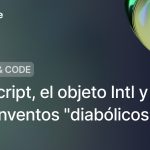Kotlin or Java: A journey through its evolution
Since my beginnings in Android development, I asked myself: "What is the best way to develop Android?Kotlin o JavaWhich is the best language? What should I choose for my project? How does this decision influence the future of the application? In the end, the key is to know how to use both languages in an intelligent way, taking advantage of the best of each one according to what is needed at each moment.
Java is a language that has been with us for decades (since 1995!). It was created by Sun Microsystems (now part of Oracle) and, since then, it has been the basis for many areas of development, from web to enterprise applications to mobile. Its popularity lives on thanks to its robustness, flexibility and a large community of developers behind it.
Kotlin, on the other hand, is a more recent language, born in 2011 from the hand of JetBrains. Although it was designed to be fully compatible with Java, it has gained ground very quickly due to its cleaner syntax, its focus on security and how easy it is to use. In 2017, Google adopted it as the official language for Android, which made the developer community adopt it even faster.
Both languages run on the Java Virtual Machine (JVM), which means they share a lot in terms of infrastructure and performance. But while they have many similarities, they also have differences that can make a difference in developer productivity and code quality.
Now that we know its history, let's see why many developers are choosing Kotlin.

Why is Kotlin the favorite language of Android developers?
In the world of Android development, Kotlin has quickly won over developers and it's not just because it's the official Android language (although that definitely helps). Kotlin has a lot of advantages that really make a difference when you're building your app.
1. Cleaner, more concise syntax
If you've ever worked with Java, you know that its syntax can be quite complex. Imagine being able to do the same thing but with far fewer lines of code. That's just what Kotlin offers. The syntax is much cleaner and more straightforward, which means your code is easier to read, maintain and debug.
2. Null Safety (goodbye to NullPointerExceptions!)
We have all had to deal with the dreaded NullPointerException in Java. Kotlin introduces a «null safety» system that allows you to explicitly declare which variables can be null and which cannot, avoiding unexpected errors.
3. Interoperability with Java (without complications or dramas)
Kotlin is fully interoperable with Java, which means that you can mix and match both languages within the same project without any problems. If you already have a Java code base, you can gradually incorporate Kotlin without having to redo everything from scratch, which is a great advantage.
4. Extension functions and functional programming
Kotlin takes functional programming and extension functions to a new level. It gives you incredible flexibility, allowing you to write cleaner and more organized code.
5. Official Google Support
Since 2017, Google officially adopted Kotlin as the language of Android. This means that many tools and libraries are optimized for Kotlin.
6. Improved productivity and reduced risk of errors
Thanks to its more concise syntax and features such as type inference, Kotlin allows you to be more productive. Less code means fewer bugs.
7. Coroutines for easier yarn handling
The handling of asynchronous operations in Kotlin is much more readable and efficient thanks to the Coroutines, reducing the complexity of asynchronous code.
Kotlin and its impact on the Android community
Since Kotlin was officially adopted by Google, it has had a huge impact on the Android developer community. Not only did it change the day-to-day life of developers, but it also transformed the way we work.
Kotlin has made Android development much more accessible. Its simple syntax has removed barriers for new programmers. Before, learning to develop Android apps with Java could be a challenge, but Kotlin has reduced that difficulty encouraging new developers to keep learning and create amazing apps.
Community support has been key in its evolution. Platforms like Reddit, Stack Overflow and GitHub are full of experts helping those who are just starting out. In addition, events like KotlinConf have fostered collaboration and growth of the Kotlin ecosystem.
The future of Kotlin on Android is assured
More and more companies and developers are joining the use of Kotlin. In addition, with Kotlin Multiplatform, Now it is possible to share code between different platforms, which opens up new opportunities for development.
This change is not just limited to Android, but Kotlin is gearing up to play a major role in the future of mobile technology. Its growth is unstoppable and its impact continues to expand beyond our imagination.

Conclusion: Does Java still have a place in Android development?
Both Java and Kotlin have their place in Android application development, but the choice depends on the needs of the project and the experience of the team. Java is still a solid and reliable language, especially in large and older projects. However, Kotlin is rapidly gaining ground thanks to its advantages: less verbosity, better security and official Google support.
Java is still a valid option, but Kotlin has passed the game. If you haven't tried it yet, what are you waiting for?
Now that you've explored the differences between Kotlin and Java and considered which one might be more suitable for your projects, you may be ready to take the next step in app development. If you're thinking about implementing advanced features such as in-app purchases in your Android apps developed with Kotlin, we recommend you read our article on how to Implementing in-app purchases with GooglePlay & Apple Store. This resource will provide you with detailed guides and practical tips to get the most out of paid platforms and improve the monetization of your applications.




